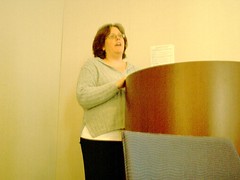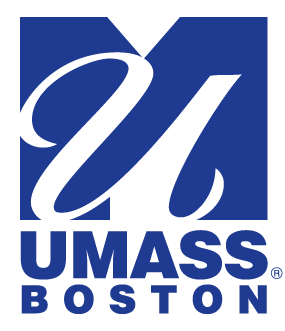Board Management
About once a month we have a brown-bag lunch discussion here at the San Francisco Non-Profit Tech Center, in which we send out a general invitation to the Bay Area's NPO community. We usually get half a dozen or so, which makes for a pretty good discussion. On Wednesday, we had a discussion about Boards.
I won't go into too much detail here, but we have a wiki for our discussions if you're interested.
http://nonprofitoperations.aspirationtech.org/index.php/January_31%2C_20...
I didn't participate much, since I haven't had much experience in this area, other than my experience with Aspiration's board in December. It was interesting to see how our board interacts with Heather and Gunner, and how they provide us with support and advice. We have a really good board who are hands-on but not too much. At the brown bag, I heard a few stories about boards that essentially micromanage, and others that provide financial support (as in, $10,000/year is required from each board member). We don't have either of those dynamics at work in Aspiration, and I think our model works well for us.
I've also been working on an Advisory Committee for Social Source Commons, which is a "board" of sorts. Basically, we're trying to pull in the expertise of people from a variety of NPO's to help give advice for SSC. We're hoping for some good advice for the site as well as data as far as what tools they use and recommend. I'm pretty much in charge of running this, so any advice is helpful.
It's also interesting that we got a Board Management tool entered into SSC in the past week called BoardTrax. Does anyone use this, or any other "board-management" software? I'm thinking of testing it out for the purposes of the aforementioned advisory committee.
If anyone has any experience or advice in dealing with boards or committees of this nature, please let me know.











 Madison Park Development Corporation
Madison Park Development Corporation Felicia Sullivan
Felicia Sullivan


Comment from danielle martin on February 7, 2007 - 12:52pm
Hey Kevin,
Great musings for a new CTC VISTA! The whole "digital divide" movement is rich with all these questions and conflicts. I'd suggest you check out the writing of Henry Jenkins at MIT (http://www.henryjenkins.org/) - he's been talking about how there's no longer a digital divide (which I disagree with myself) but now it's a "participation gap", which sounds close to what you're getting at. I'd agree that the work needs to be less about just getting people access to technology, but giving them the skills and value to using it.
Anyway, I'm definitely thinking this would be a great part of the next Digest.
-Danielle
Comment from Peter Miller on February 7, 2007 - 4:17pm
Hey, Kevin, Danielle's given me a heads up about your post and since I'm in the middle of writing some funding inquiries for the project and how we contribute to "bridging the digital divide," looks like it'd be useful for me to check out your post to see what new highways and by-ways it points to.
…and a good post it is. The way you begin your penultimate paragraph is right on, and your final conclusion is a great reward. Lots of really good questions. Let me offer just a couple of contributions to the topic and check back in down the line to see how it's going.
The founder of all of this, Antonia Stone, who began the Playing to Win computer literacy and training program for prisoners and ex-offenders back in 1981, the Playing to Win community computing center in a public housing basement in east Harlem in 1983, the Playing to Win Network, PTWNet, which grew into CTCNet--she saw way back when that computers would become a basic social tool and that those without access to them and the education and training to use them effectively would become further alienated and disenfranchised from our basic culture and resources and that have-have not divisions would deepen into even greater social antagonisms with major social and political repercussions. A lot of that is reflected quite explicitly in the original PTW creed as it was developed in the 80's and carried into the 90's and 21st century. See, for instance, www.comtechreview.org/winter-spring-1998/r981miss.htm:
"Community Technology Centers' Network (CTCNet) envisions a society in which all people are equitably empowered by technology skills and usage. CTCNet is committed to achieving this end.
"CTCNet shares with Playing To Win, its founding organization, a recognition that, in an increasingly technologically dominated society, people who are socially and/or economically disadvantaged will become further disadvantaged if they lack access to computers and computer-related technologies.
"CTCNet brings together agencies and programs that provide opportunities whereby people of all ages who typically lack access to computers and related technologies can learn to use these technologies in an environment that encourages exploration and discovery and, through this experience, develop personal skills and self-confidence.
"CTCNet offers resources to enhance each affiliated agency/program's capacity to provide technology access and education to its constituency and to help and nurture other like-minded programs in its area. CTCNet will facilitate telecommunications, print, and in-person linkages enabling members to benefit from shared experience and expertise.
"CTCNet will be a leading advocate of equitable access to computers and related technologies; it will invite, initiate, and actively encourage partnerships and collaborations with other individuals and organizations that offer resources in support of its mission; and it will strive, in every arena, to bring about universal technological enfranchisement."
Toni and CTCNet people did not invent the phrase "digital divide," but that's what the organization and the movement spoke to through the 90's as the phrase picked up currency during the latter years of the Clinton-Gore administration. It was a "Digital Divide" Request for Proposal (RFP) that the Corporation for National and Community Service issued in the spring of 2000 that led to the establishment of the CTC VISTA Project, the anti-poverty missions of VISTA and CTCNet coming together in the effort we are all involved with now.
Even then the phrase "digital divide" was starting to lose its currency and popularity, not only among those who tried to minimize the problem and say it no longer existed, but also among many of the strongest proponents of CTC programs and efforts that sought to provide greater technology resources and capacities for the entire nonprofit sector. The argument, so it goes, is that the phrase originated from the side of the "haves" and reflects neither the experience nor the understanding of the "have-nots" but rather a characteristic problematic we-have-the-knowledge-and-tools upper, upper-middle class patronizing attitude. In many quarters the phrase "digital opportunities" program has come to be used in its place. I personally value the phrase "digital divide" as it is one of the few expressions in public discourse that carries with it the sense that there are deep social divisions we need to address.
There's much more to be said in response to your set of questions--this seems like a good amount for now. -----peter
= = = = = =
Peter Miller -- CTC VISTA Project -- www.ctcvista.org
Comment from Kevin Bulger on February 7, 2007 - 5:54pm
Hi Peter,
I think it is important that the issues regarding the technologically under-served and under-educated be revisited, renamed, and reconceptualized every so often just to make the issue fresh and exciting to would-be funders. Otherwise this to happens.
The term "digital divide" carries weight because its simple, self-explanatory, and familiar. However, it is limited by its staleness; it evokes oversimplified solutions; and the term has become associated with superfluous luxury. Eveything has its pluses and minuses, I guess.